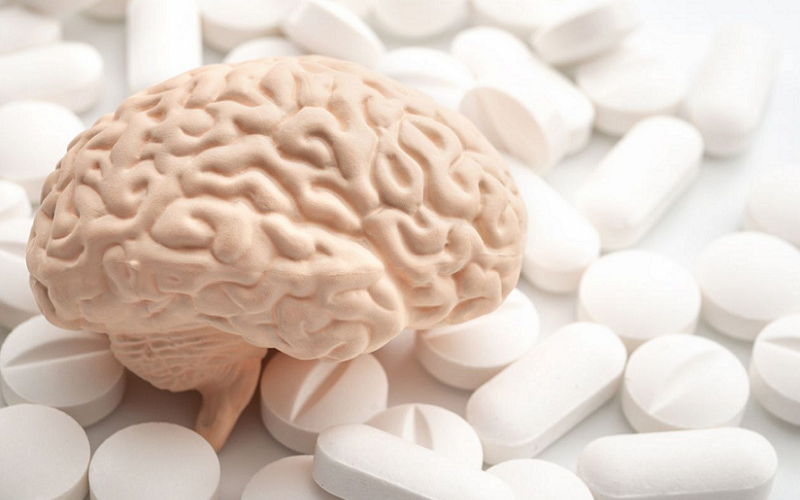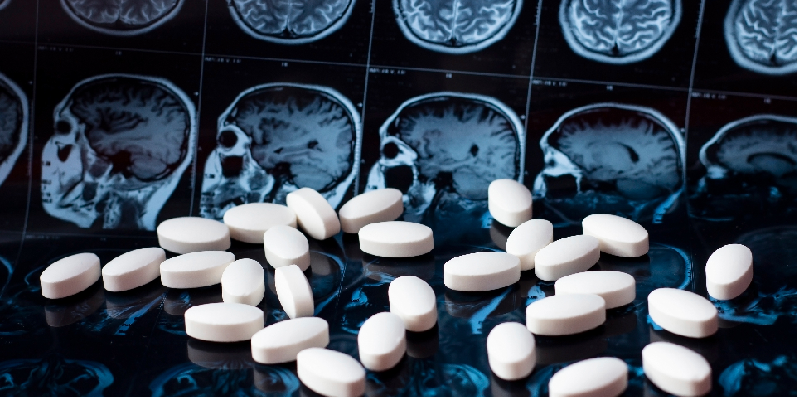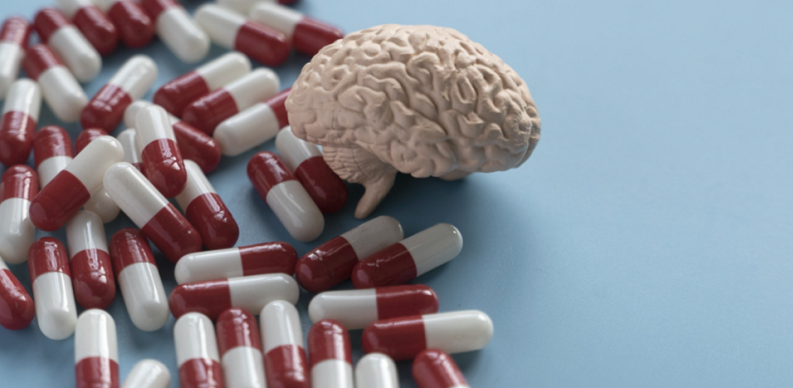
In the ever-evolving quest for enhanced cognitive abilities, nootropics have emerged as a beacon of hope for many. These so-called ‘smart drugs’ are lauded for their potential to improve memory, creativity, and overall brain function. However, amidst the growing popularity of nootropics, there lies a critical, often overlooked aspect: the placebo effect. This phenomenon, where a patient’s belief in a treatment’s efficacy can lead to perceived or actual improvements, plays a significant role in assessing the true effectiveness of nootropics.
Contents
Understanding Nootropics
Before digging into the specifics of the placebo effect in nootropic trials, it is essential to establish a clear understanding of what nootropics are, their types, and the scientific principles behind their usage.
Definition and Types of Nootropics
Nootropics, commonly referred to as ‘smart drugs’ or ‘cognitive enhancers’, are a class of substances that claim to improve cognitive function, particularly executive functions, memory, creativity, or motivation, in healthy individuals. The concept was first introduced in the 1960s by Romanian psychologist and chemist Dr. Corneliu E. Giurgea, who identified several criteria that a substance must meet to be considered a true nootropic. These criteria include enhancing learning and memory, protecting the brain from physical or chemical injury, and displaying few or no side effects at therapeutic doses.
Nootropics can be broadly classified into three categories: dietary supplements, synthetic compounds, and prescription drugs. Dietary supplements, like Ginkgo biloba and Omega-3 fatty acids, are widely available and often marketed for their brain-boosting effects. Synthetic compounds, such as Piracetam and Modafinil, are more potent and typically used for specific cognitive enhancements. Lastly, prescription drugs like Adderall and Ritalin, primarily prescribed for conditions like ADHD, are also used off-label for their cognitive-enhancing effects.
Common Uses and Claimed Benefits of Nootropics
The appeal of nootropics lies in their promise to enhance various aspects of cognitive function. Users of these substances often report improvements in memory retention, focus, mental clarity, and processing speed. The use of nootropics has gained traction among students seeking to improve academic performance, professionals aiming to boost productivity, and older adults looking to preserve cognitive function.
Despite these claims, the scientific community remains cautious. While some studies suggest potential benefits, the evidence is often inconsistent or limited. This inconsistency raises questions about the true efficacy of nootropics and the role of psychological factors, such as the placebo effect, in perceived improvements.
Scientific Basis and Mechanism of Action of Nootropics
To comprehend how nootropics might function, it’s important to look at their proposed mechanisms of action. These substances are believed to affect the brain in various ways, such as altering the availability of neurochemicals, improving the brain’s oxygen supply, or stimulating nerve growth.
For instance, some nootropics are thought to influence neurotransmitters like acetylcholine, dopamine, and serotonin, which play significant roles in cognitive processes. Others may enhance blood flow to the brain, thereby improving oxygen and nutrient delivery. Additionally, certain nootropics are hypothesized to support neuronal health, potentially aiding in the prevention of cognitive decline [1].
However, it’s crucial to note that the scientific understanding of these mechanisms is still evolving. The variability in individual responses and the lack of large-scale, conclusive studies make it challenging to definitively ascertain the effectiveness of nootropics. This gap in knowledge underscores the importance of further research, especially in distinguishing genuine cognitive enhancement from placebo effects.

The Concept of Placebo Effect
The placebo effect is a pivotal factor in medical research and clinical trials, including those involving nootropics. Understanding this phenomenon is crucial to discerning the true efficacy of any therapeutic intervention.
Definition and Historical Background of the Placebo Effect
The placebo effect refers to the improvement in a patient’s condition resulting from the mere belief that they are receiving an effective treatment, rather than from the treatment itself. This phenomenon can occur in both medical and psychological interventions, where a patient experiences real changes in their health after receiving a treatment that has no therapeutic value.
Historically, the term “placebo” (Latin for “I shall please”) was used in a clinical context as early as the 18th century. Initially, it referred to treatments given more to please the patient than to benefit them medically. Over time, the understanding of the placebo effect has evolved, highlighting its complex interplay with the patient’s expectations, the treatment setting, and the interaction between the patient and healthcare provider.
How Placebo Effect Works
The placebo effect operates through several psychological and physiological mechanisms. The key element is the patient’s expectation of benefit, which can trigger a series of neurobiological responses. These responses can include the release of endorphins and other neurotransmitters that can genuinely alleviate pain and improve mood [2].
Another important aspect is the conditioning effect, where the patient’s previous experiences with effective treatments lead them to associate certain procedures or environments with relief and healing. This conditioning can result in a physiological response when exposed to a similar situation, even if the actual treatment is a placebo.
Additionally, the placebo effect is influenced by the patient-healthcare provider interaction. Positive interactions, where the provider displays empathy, confidence, and care, can enhance the patient’s expectation of benefit, thus amplifying the placebo effect.
Placebo Effect in Clinical Trials
In clinical trials, the placebo effect presents both challenges and opportunities. On the one hand, it can obscure the true efficacy of a treatment, making it difficult to ascertain whether improvements are due to the treatment itself or to the patient’s belief in its effectiveness. This is particularly pertinent in trials for conditions with subjective outcomes, like pain or mood disorders, where the placebo effect can be quite strong.
On the other hand, understanding and harnessing the placebo effect can offer insights into the mind-body connection and how patient expectations and beliefs can influence health outcomes. This understanding can be valuable in improving patient care, even in areas beyond pharmacological interventions.
In nootropic trials, where subjective self-assessment of cognitive function is common, the placebo effect can significantly impact results. This makes it crucial to design trials that can effectively differentiate between the actual effects of the nootropics and the psychological impact of taking a substance believed to enhance cognitive performance.
Placebo Effect in Nootropic Trials
The placebo effect’s influence in nootropic trials is a critical aspect that shapes our understanding of these substances’ true efficacy. Here we explore the challenges posed by the placebo effect in nootropic research and how it affects the interpretation of trial results.
Challenges in Nootropic Research
One of the primary challenges in researching nootropics is the subjective nature of cognitive enhancement. Unlike objective measures used in many medical trials, such as blood pressure readings or tumor size, cognitive improvement is often based on personal perception and self-reporting. This subjectivity can make it difficult to distinguish between real cognitive enhancement and the placebo effect.
Moreover, the placebo effect in nootropic trials can be particularly potent due to the high expectations of participants. Many individuals trying nootropics are highly motivated and optimistic about their potential benefits, which can enhance the placebo response. This optimism is often fueled by anecdotal reports and media coverage, setting a high expectation even before the trial begins [3].
Examples of Placebo-Controlled Nootropic Trials
To understand the impact of the placebo effect, it is instructive to look at specific nootropic trials that have utilized placebo controls. For example, in trials testing the efficacy of modafinil in cognitive enhancement, some participants receiving placebo pills reported significant improvements in focus and memory, comparable to those taking the actual drug. This highlights the challenge in objectively assessing the effectiveness of nootropics.
Another example is the study of Ginkgo biloba, a popular herbal nootropic. In some trials, participants receiving a placebo demonstrated improvements in memory tests, suggesting a strong placebo effect at play. These examples underscore the importance of well-designed placebo-controlled trials in providing reliable data on nootropics’ efficacy.
Analyzing Placebo Responses in These Nootropic Trials
The analysis of placebo responses in nootropic trials is crucial for understanding the drugs’ true effects. Researchers often use techniques like ‘active’ placebos, which mimic the side effects of the drug being tested without providing its cognitive benefits, to better mask whether participants are receiving the treatment or the placebo.
Another approach is to include objective cognitive tests, alongside subjective assessments, to provide a more balanced view of the nootropics’ impact. Additionally, analyzing the data for patterns in placebo responses can help in understanding the characteristics of individuals who are more susceptible to the placebo effect. This knowledge can be used to refine trial designs and improve the accuracy of interpretations regarding nootropics’ effectiveness.

The Impact of Placebo on Nootropic Efficacy
The placebo effect is a significant factor in evaluating nootropic efficacy. Understanding its impact is crucial for interpreting research findings and for consumers to make informed decisions about nootropic use.
Interpretation of Nootropic Placebo Trial Results
The interpretation of results from nootropic trials must carefully account for the placebo effect. In many instances, trial participants report cognitive benefits even when receiving a placebo, which can blur the line between the actual efficacy of the nootropic and the psychological or psychosomatic effects of taking a substance believed to be beneficial [4].
Researchers often employ statistical methods to differentiate between the true effects of the nootropic and those attributable to the placebo. This involves comparing the improvements in the placebo group with those in the group receiving the actual nootropic. A significant challenge arises when the differences are minimal or when both groups show similar levels of improvement. In such cases, it can be hard to conclusively attribute cognitive enhancements to the nootropic alone.
Distinguishing Between True Effects and Placebo in Nootropic Trials
Distinguishing between the true effects of nootropics and the placebo effect involves a multifaceted approach. It requires not just well-designed clinical trials but also a comprehensive analysis of the data. For instance, if a significant number of participants in the placebo group report improvements, researchers might look at other factors such as lifestyle, diet, and psychological state to explain these changes.
In addition, the use of objective cognitive assessments, such as memory tests or problem-solving tasks, can provide more concrete evidence of a nootropic’s efficacy. These objective measures, when used alongside subjective reports, can offer a more balanced and accurate understanding of the nootropic’s impact.
Case Studies of Notable Nootropic Placebo Trials
Examining specific case studies of nootropic trials can illuminate the nuances of the placebo effect. For example, in trials involving the drug Piracetam, known for its potential memory-enhancing effects, some studies have shown only marginal differences between the placebo and the drug group. In contrast, other trials reported significant cognitive improvements in participants taking Piracetam compared to those on placebo.
Another interesting case involves trials of Omega-3 supplements where improvements in cognitive function were observed in both the treatment and placebo groups, but to different extents. Such cases highlight the complexity of interpreting nootropic efficacy and underscore the need for rigorous scientific investigation to separate the placebo effect from the true cognitive benefits of nootropics.
Ethical Considerations of Using Placebos in Trials
The ethical dimensions of the placebo effect in nootropic trials are as important as the scientific ones. These considerations revolve around the morality of using placebos, informed consent, and the balance between potential benefits and risks.
Ethical Dilemmas in Using Placebos in Nootropic Trials
The use of placebos in clinical trials, including those for nootropics, presents several ethical challenges. A primary concern is the question of deception. Participants in a placebo group are given a substance with no therapeutic value, often without their knowledge. This can raise issues of trust and honesty between researchers and participants.
Moreover, when effective treatments are available, using a placebo can deprive participants of potentially beneficial therapy. This is particularly relevant in nootropic trials where participants might be seeking cognitive enhancement for specific health conditions or improvements in quality of life. Balancing the scientific necessity of placebo controls with the ethical obligation to provide beneficial treatment is a delicate task.
Informed Consent in Nootropic Trials
Informed consent is a cornerstone of ethical research. Participants must be fully aware of the nature of the trial, including the possibility of receiving a placebo, and the potential risks and benefits of participation. This transparency is crucial in maintaining trust and respecting participants’ autonomy [5].
However, the efficacy of the placebo effect is partly dependent on the participant’s belief in the treatment. This presents a unique challenge: how to ensure informed consent without undermining the potential placebo effect, which is a key aspect of the trial’s design. Researchers must navigate this dilemma carefully, ensuring that participants are adequately informed while maintaining the integrity of the study.
Balancing Risk and Benefit of Using Placebos in Nootropic Trials
Evaluating the risk-benefit ratio is essential in any clinical trial, including those involving nootropics. While the physical risks of nootropics and placebos might be low, especially compared to more invasive treatments, the psychological impact and the potential for misinterpretation of efficacy are significant considerations.
Researchers must weigh the potential cognitive benefits of nootropics against the psychological and ethical implications of the placebo effect. This includes considering the long-term impact on participants’ perception of cognitive enhancers and their trust in clinical research. Ensuring that the potential benefits justify any risks is a fundamental ethical responsibility in conducting nootropic trials.
References
[1] Placebo- and nocebo-effects in cognitive neuroenhancement: When expectation shapes perception
[2] The Efficacy of A Nootropic Supplement on Information
Processing in Adults: A Double Blind, Placebo Controlled
Study
[3] The power of the placebo effect
[4] Acute Effect of a Dietary Multi-Ingredient Nootropic as a Cognitive Enhancer in Young Healthy Adults: A Randomized, Triple-Blinded, Placebo-Controlled, Crossover Trial
[5] Plant-derived nootropics and human cognition: A systematic review

